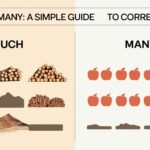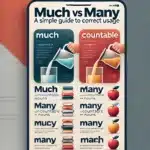Blog

Antithesis vs Juxtaposition: Mastering the Art of Contrast in Writing
In the world of literary techniques and writing tools, few devices are as powerful as antithesis and juxtaposition. These two ...

Afterward vs Afterwards: Understanding the Key Differences
If you’ve ever found yourself wondering about the difference between “afterward” vs “afterwards,” you’re not alone. These two words might ...

The Plural of Status: Understanding the Grammar Puzzle
The word “status” might seem simple, but it often confuses people when it comes to making it plural. Is it ...

Vicious vs Viscous: the Art of Word Choice in Writing
In English, some word pairs, like “vicious” and “viscous,” can easily confuse even experienced writers. Though they sound alike, their ...

Axle or Axel: What’s the Difference?
When you encounter the words “axle” and “Axel,” you might wonder if they are interchangeable or if one is a ...

Have Been vs. Has Been vs. Had Been: How to Use Each One Correctly
Understanding verb phrases like have been, has been, and had been is essential to mastering English grammar, especially when dealing ...

Mastering “Check in” vs. “Check-in”: A Comprehensive Guide to Correct Usage
In the ever-evolving landscape of the English language, few phrases spark as much confusion as “check in” and “check-in.” Whether ...

The Great Syllabus Showdown: Syllabuses or Syllabi?
The Great Syllabus Debate: Syllabuses or Syllabi? You’re sitting in your first college class, eager to start the semester, when ...

Of Course or Ofcourse: Which One is best choice You Use?
In English, it’s easy to run into phrases that seem simple but cause confusion in writing. A prime example is ...

Compare vs Contrast: Unlocking the Power of Analytical Thinking
Ever found yourself scratching your head, wondering whether to compare or contrast two ideas? You’re not alone. This age-old dilemma ...






